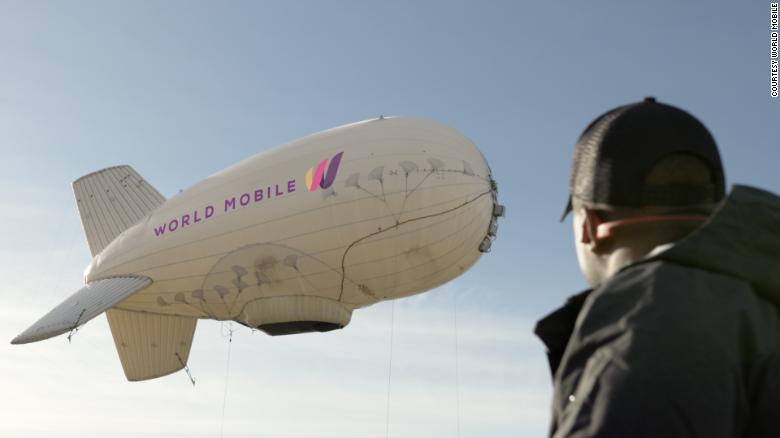advertisement
UK Company Sets Out to Bring Internet Blimps to Zanzibar

Tanzanian residents of the islands of Zanzibar and Pemba are set to benefit from a mobile internet network test at the islands.
The creators of the internet network hope it will not just revolutionize lives in Zanzibar and Pemba, but possibly across sub-Saharan Africa and beyond.
Only around 20% of Tanzanians use the internet, according to World Bank. In sub-Saharan Africa, usage is affected by limited internet coverage and compounded by high data costs and low digital literacy. However, change could soon be written in the sky.
advertisement
UK company World Mobile is launching a hybrid network using aerostats — blimp-like tethered balloons that it says will provide near-blanket coverage across the islands.
Two solar-powered, helium-filled balloons will float 300 meters (984 feet) above land and have a broadcast range of around 70 kilometers (44 miles) apiece, using 3G and 4G frequencies to deliver their signal.
The balloons can survive winds of up to 150 kilometers per hour (93 miles per hour) and stay airborne for up to 14 days before descending for refilling. In the few hours of downtime, other aerostats will be airborne, ensuring users are never without service, says the company.
advertisement
The signal from an aerostat — used as a low altitude platform station (LAPS) — is sufficient for tasks like internet browsing and email, says World Mobile. Meanwhile, construction is underway for a network of nodes on the ground, each able to provide WiFi for hundreds of people with speeds sufficient for video streaming and gaming. The network comprising 125 locations is scheduled for completion this year and the first balloon will launch in June.
World Mobile CEO, Micky Watkins said that Zanzibar represents an interesting opportunity as per its population. The World Mobile boss said that the island’s population of approximately one and a half million people makes it be like a small country.
Larger companies had tried to put an internet delivery system using high altitude drones but haven’t been successful. Facebook’s Project Aquila of this internet delivery system, was closed in 2018.
advertisement
Loon, which used stratospheric balloons to deliver internet connectivity, and was part of Google parent company Alphabet, folded in January 2021.
Project Aquila and Loon were designed to provide the internet to remote areas using high altitude platform station (HAPS) systems. Loon was used in disaster relief efforts, including in the aftermath of Hurricane Maria, which hit Puerto Rico in 2017 (Loon partnered with CNN parent company AT&T to do so) and was also trialed commercially in Kenya as recently as 2020.
World Mobile is also conducting experiments with HAPS technology, but is not waiting on it before rolling out its aerostats and ground WiFi network. “It would be silly to spend three to four years researching (and) developing the full network solution without deploying what we know we can deploy now,” says Watkins.